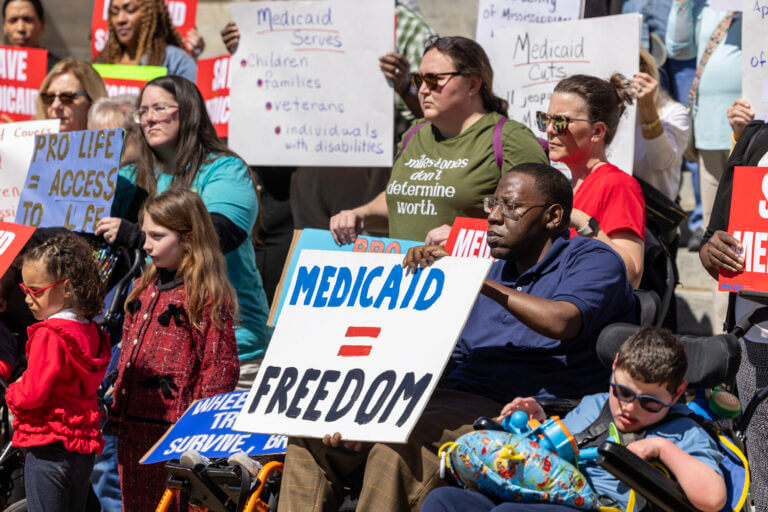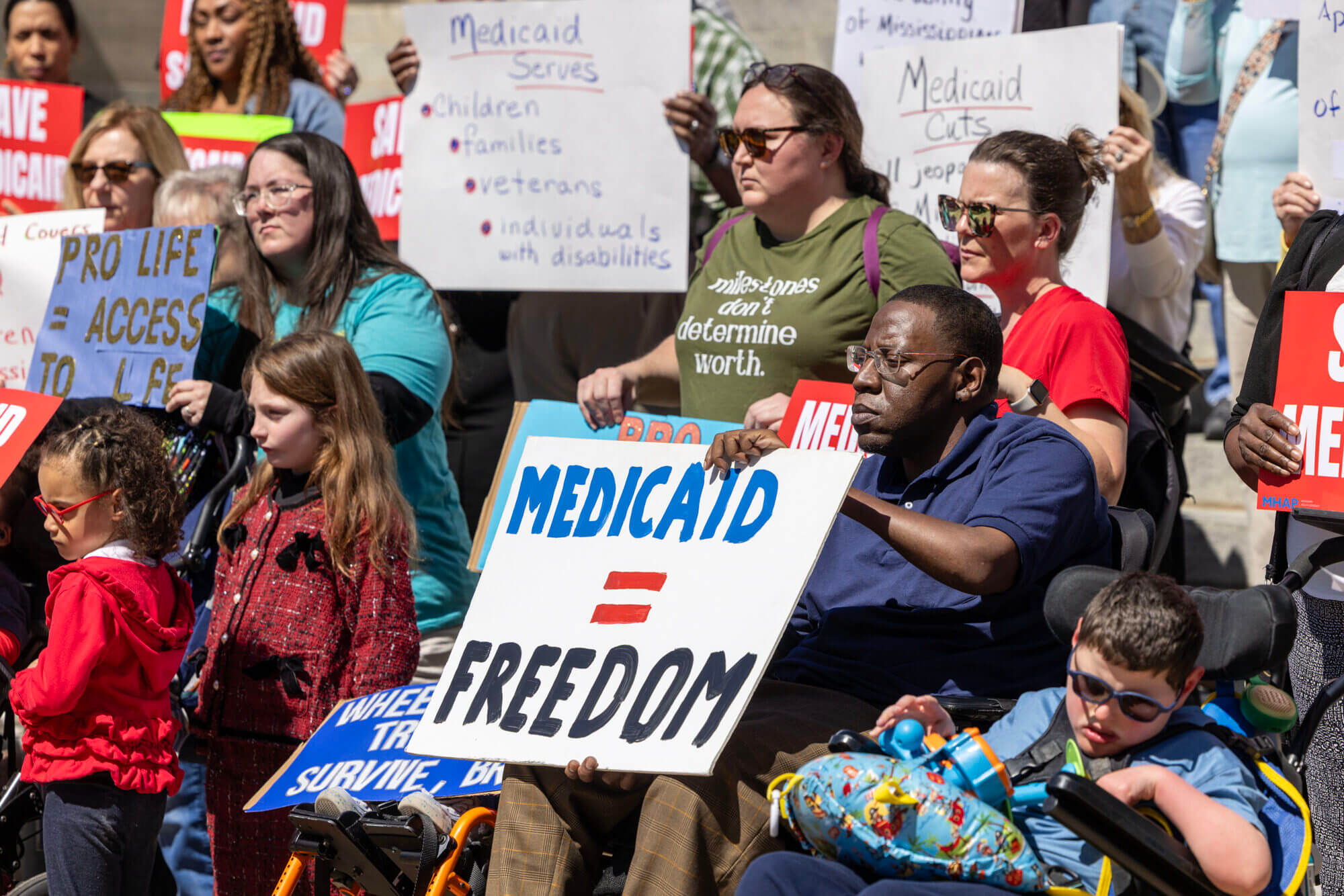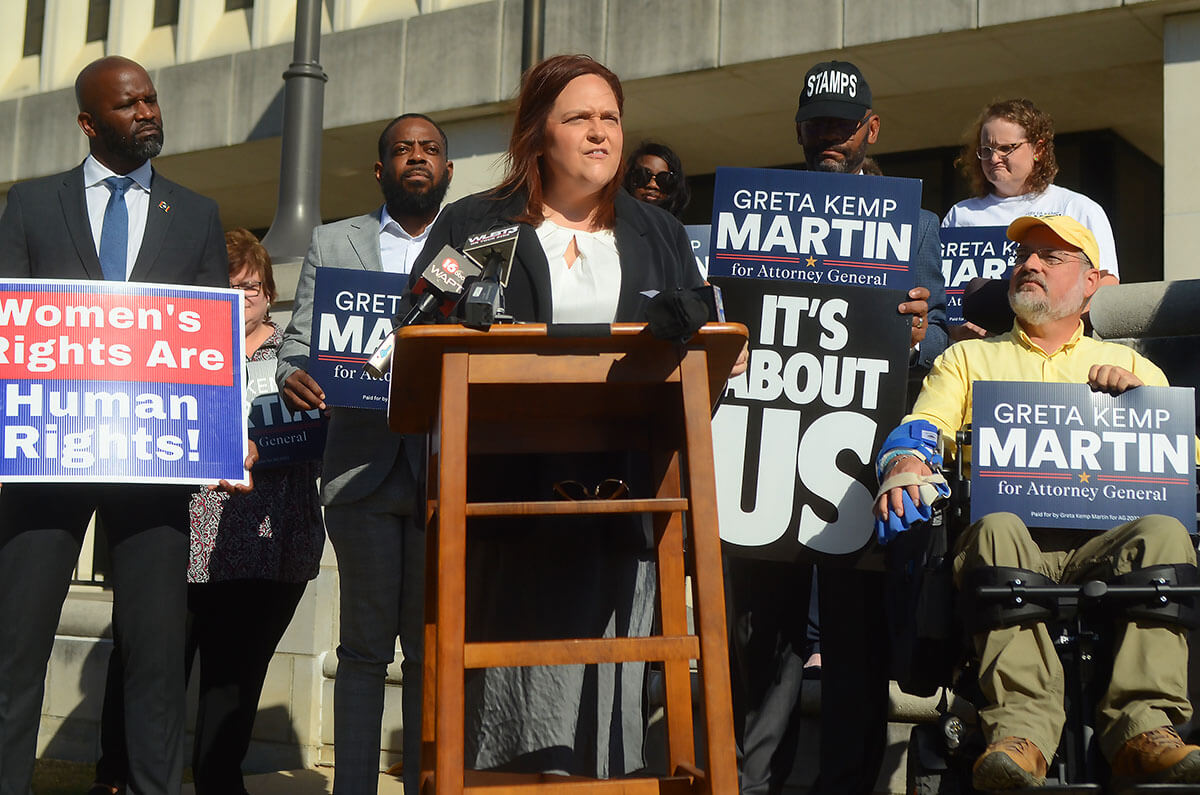

Editor’s note: This essay is part of Mississippi Today Ideas, a platform for thoughtful Mississippians to share fact-based ideas about our state’s past, present and future. You can read more about the section here.
If Mississippi has taught me anything, it’s that federal policy rarely trickles down as promised. For people with disabilities, especially in our state, Medicaid isn’t a political talking point—it’s survival.
Medicaid pays for in-home support, daily nursing care, medications, equipment and community access. Without it, the alternative is often institutionalization, isolation or worse.
But under the Trump administration’s proposed budget, this vital program is facing devastating cuts. Medicaid is on the chopping block, and Mississippi is standing directly in the path of the blade.
Recently, I spoke with a mother in the Mississippi Delta whose son has a rare degenerative condition. He’s nonverbal, uses a wheelchair and needs help with every aspect of daily life. For the past three years, Medicaid has provided her a modest stipend to be his paid caregiver—allowing her to stay home, care for him full-time and keep him out of a facility 90 miles away.
“If they cut this program,” she told me, “I’ll have to go back to work. But no one else can care for him. What happens to him then?”
She already knows the answer: He’ll be institutionalized. Not because he needs to be — but because that’s the only option left when Medicaid collapses and the community-based care disappears.
The Kaiser Family Foundation ranks Mississippi as one of the states most vulnerable to federal Medicaid cuts. We rely on federal funds for nearly three-quarters of our Medicaid budget. Unlike wealthier states, we don’t have the cushion (or the political will) to fill the gap if that money disappears.

And it’s not just one program on the line. The Urban Institute outlines how slashing HHS funding will kneecap services that help disabled people live independently. That includes everything from personal care attendants to case managers to basic home health. Families as Allies of Mississippi and the Mississippi Coalition for Citizens with Disabilities have issued repeated warnings, but so far, the response from many of our lawmakers has been silence.
We’ve seen this film before. And we won’t like the ending: more people forced into institutions, more families pushed to the brink and more lives lost.
Even the Right Is Blinking. Sen. Josh Hawley of Missouri — hardly a progressive firebrand — was publicly opposing the Trump administration’s cuts in a recent New York Times op-ed.
For those not familiar with Sen. Hawley’s typical position, this should raise alarm bells.
“Medicaid isn’t a handout,” he writes. “It’s a commitment to human dignity.”
For once, he’s right. Message to current administration: If your policy has lost even Josh Hawley, maybe it’s time to ask yourself what exactly you’re defending.
What’s happening in Washington isn’t abstract. This is a direct threat to people in Mississippi, especially those with disabilities.
More than 700,000 Mississippians — about a quarter of the state’s population — rely on Medicaid or the federal Children’s Health Insurance Program, according to the Mississippi Division of Medicaid website. Medicaid covers 1 in 3 Mississippians with disabilities. Medicaid provides not only health care, but also essential supports like personal care services, durable medical equipment and access to home and community-based services that allow people to live independently instead of being institutionalized.
The latest GOP proposals in Congress may avoid the most dramatic cuts for now, but they still set the stage for devastating consequences. Policies like work requirements and funding clawbacks are being framed as “moderate reforms,” but let’s be clear: they target the very people Mississippi’s system is already failing, including low-income families, disabled residents and rural communities with limited alternatives.
National experts at KFF warn that cuts of this scale could force states to reduce benefits, tighten eligibility or shift costs in ways that make care harder to access. Recent Axios reports say Medicaid work requirements could lead to hundreds of thousands losing coverage. This is not because people can’t work, but because navigating paperwork shouldn’t be a condition for staying alive.
As of this week, Mississippi’s delegation has been largely silent, but the health care system they claim to protect is already in crisis. If these policies move forward, they’ll be accelerating a slow-motion disaster.
The question isn’t whether cuts are “technically moderate.” The question is: Who gets left behind and who’s counting on us not to notice?
Here’s the deal: Medicaid in general is and never will be perfect. But when it’s paired with deep underinvestment and a cruel federal rollback, it stops being a policy failure and starts being a moral one.
Mississippians with disabilities aren’t asking for special treatment. They’re asking to live in their homes. To go to school. To survive. If you gut Medicaid, you don’t just cut cost — you cut people off from their futures.
And from where I sit, the view is clear: We must sound the alarm, raise our voices and refuse to be complicit in policies designed to leave our most vulnerable behind.
Bio: A Tishomingo County native, Greta Kemp Martin is an attorney who advocates for the disabled as litigation director of Disability Mississippi. She is an Ole Miss alum and holds a law degree from Mississippi College School of Law. She and her family live in Jackson.
- Generators, blankets, candles: Mississippians without power cope in the cold - January 27, 2026
- Legislator’s bill aims to close six-week payday gap for Mississippi public school teachers - January 27, 2026
- Sen. Hillman Frazier: Mississippi must act now on child care for working families - January 27, 2026